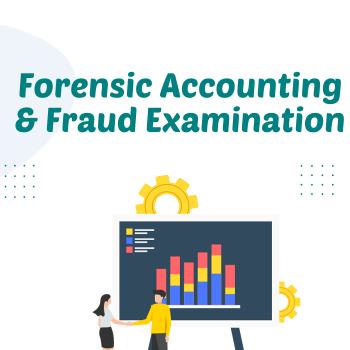- September 11, 2023
- Posted by: Limitless Consulting
- Category: Uncategorized

Forensic accounting is the application of accounting, auditing, and investigative skills to legal matters. It is used to gather and analyze financial evidence in order to help solve crimes, resolve civil disputes, and protect assets.
Fraud examination is a specialized area of forensic accounting that focuses on the detection, investigation, and prevention of fraud. Fraud examiners use their knowledge of accounting, auditing, and investigative techniques to identify and document fraudulent activity. They also work to recover losses caused by fraud and to bring the perpetrators to justice.
Forensic Accounting vs. Traditional Accounting
While traditional accountants focus on maintaining accurate financial records and preparing reports, forensic accountants specialize in investigating financial irregularities. Traditional accountants are concerned with the present and past financial health of an organization, while forensic accountants deal with uncovering past wrongdoing and preparing for potential legal action.
The Key Responsibilities of a Forensic Accountant
Forensic accountants are tasked with a range of responsibilities, including:
Gathering and Analyzing Financial Data
Forensic accountants meticulously examine financial records, transactions, and documents to identify discrepancies or signs of fraudulent activity.
Conducting Interviews
They interview individuals involved in financial matters, aiming to gain insights and collect evidence related to potential fraud.
Expert Witness Testimony
Forensic accountants often testify as expert witnesses in court, presenting their findings and helping judges and juries understand complex financial matters.
Fraud Prevention and Detection
They also play a vital role in advising organizations on how to prevent financial fraud and implement internal controls.
Types of Fraud
There are many different types of fraud, but some of the most common include:
- Asset misappropriation: This type of fraud involves the theft of assets, such as cash, inventory, or intellectual property.
- Corruption: This type of fraud involves the abuse of power for personal gain. It can occur in both the public and private sectors.
- Financial statement fraud: This type of fraud involves the intentional misstatement of financial statements in order to deceive investors or creditors.
- Insurance fraud: This type of fraud involves the intentional misrepresentation of facts in order to obtain an insurance payout.
- Cyber fraud: This type of fraud involves the use of technology to commit fraud, such as phishing scams or identity theft.
Role of Forensic Accountants in Fraud Examination
Forensic accountants play a vital role in fraud examinations. They use their skills and knowledge to:
- Identify and document fraudulent activity
- Reconstruct financial records
- Trace money flows
- Interview witnesses
- Analyze evidence
- Provide expert testimony in court
Forensic Accounting Process
The forensic accounting process typically involves the following steps:
- Planning: The forensic accountant meets with the client to discuss the allegations of fraud and to develop a plan of investigation.
- Gathering evidence: The forensic accountant gathers financial records, documents, and other evidence related to the fraud.
- Analyzing evidence: The forensic accountant analyzes the evidence to identify and document the fraudulent activity.
- Reporting findings: The forensic accountant reports their findings to the client and/or the authorities.
Preventing Fraud
Forensic accountants can also help prevent fraud by:
- Conducting fraud risk assessments
- Implementing internal controls
- Training employees on fraud prevention
Forensic accounting and fraud examination are important tools for detecting, investigating, and preventing fraud. Forensic accountants play a vital role in the fight against fraud, and their skills and knowledge are in high demand.
Here are some other things to keep in mind about forensic accounting and fraud examination:
- Forensic accountants must be highly skilled in accounting, auditing, and investigative techniques. They must also be able to think critically and analytically.
- Forensic accounting can be a complex and challenging field, but it is also very rewarding. Forensic accountants have the opportunity to make a real difference in the world by helping to fight fraud and protect people’s assets.
If you are interested in a career in forensic accounting, there are a few things you can do to prepare. First, get a degree in accounting, forensic accounting, or a related field. You may also want to consider getting a master’s degree in forensic accounting. In addition, you should gain experience in accounting and auditing. You can do this by working as an accountant or auditor, or by volunteering with a nonprofit organization that investigates fraud.
